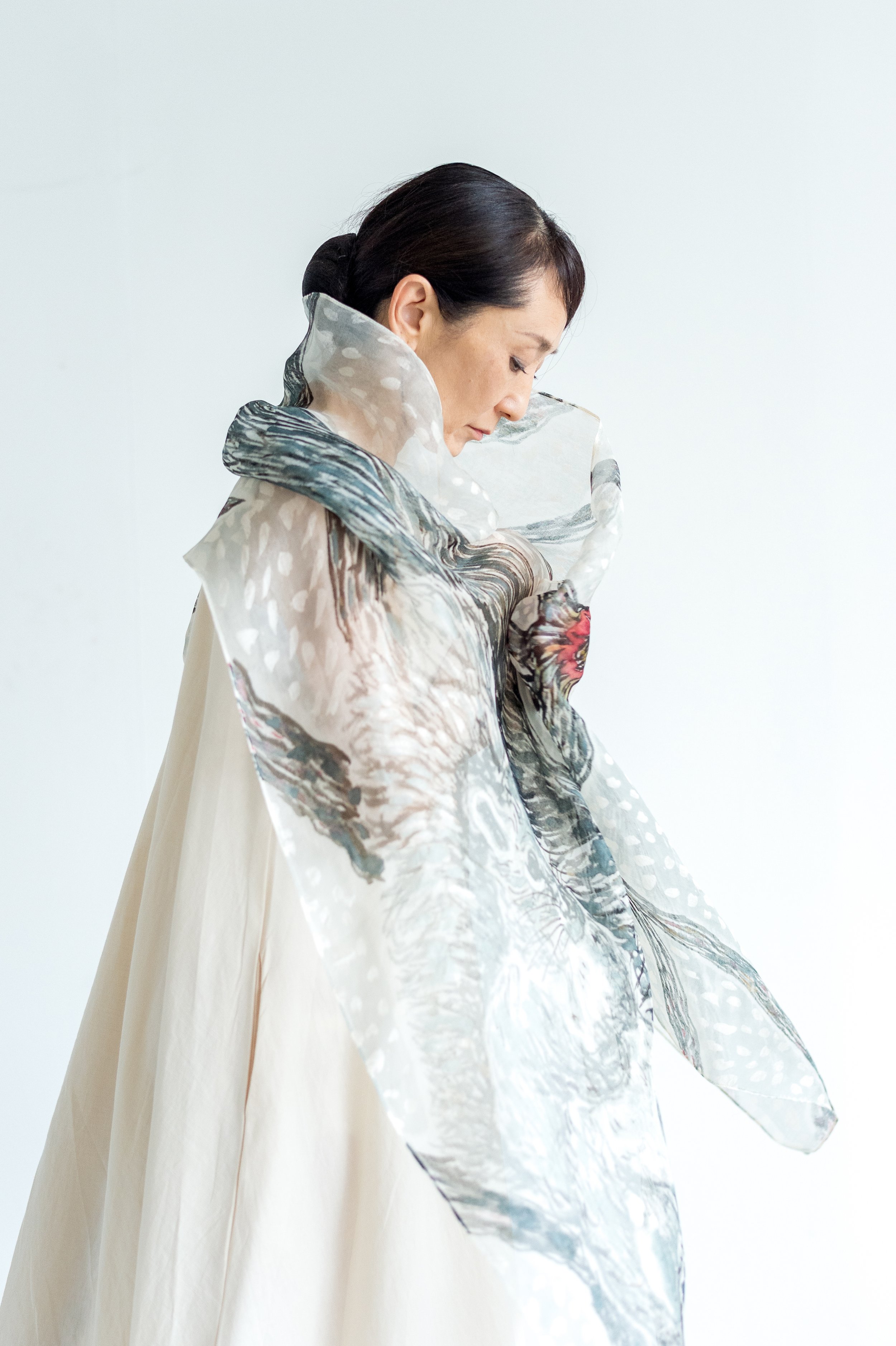The Peak of Summer: Cheering for the Cicadas that Vanquish the Noise of Squirrels
Midsummer in Chestertown is as muggy as wetlands in the Amazon (according to my imagination, at least). My friend came all the way from San Francisco to visit me in this sweltering town. Upon arriving at my house and after stepping out of my car, she asked, “What’s this sound?” I wondered for a moment and replied, “What? Sound?” Then she said, “Yes, sound. Listen, this one.” I was still uncertain but guessed, “Insect noises? Are you talking about the cicadas?”
In Chestertown, the sounds of bugs are really overwhelming. So are those of birds too. In contrast, when I lived in New York, I was annoyed by fire engine and police sirens as well as honking horns. I remember that I was surprised at the drastic change of sounds when I moved into Chestertown. Even so, the sound of cicadas is a summer hallmark! I could hear cicadas in New York City, and also the far more dramatic cicadas in Japan, amusing us with a variety of chorus harmonies. Are there no cicadas in San Francisco? I wondered. Anyway, what can be taken for granted in one place can not always be so in others! The longer we live, the more new discoveries we find. That’s fun, isn’t it?
This month I’d like to talk about cicadas. Even if there aren’t any in San Francisco, there are approximately 1,600 species of cicadas worldwide. In the U.S. there are periodical cicadas called 13 and 17-year cicadas whose populations are synchronized to emerge in the same year. It’s a bit scary, I think. Cicadas in Japan have loving characters and are beloved enough to be used in literature as a seasonal word to associate with summer. Female cicadas lay eggs in the holes of tree trunks or on branches around July and August. The eggs remain through the winter and cicada young, called “nymphs”, hatch from the eggs the next June. The nymphs burrow underground and stay buried to suck tree sap and grow. They molt underground biannually or annually and emerge aboveground in the seventh year in Japan or the 13th or 17th years in the U.S. The nymphs aboveground shed their skin on branches or on the back of leaves to become adult cicadas. Male cicadas make buzzing sounds and female cicadas are attracted to the male buzzing, at which time they mate. The life expectancy of an adult cicada is about 2-3 weeks. During this short period, they find partners and create the next generation. The buzzing sounds vary depending on the species.
Here are my attempts to mimic cicada sounds:
Kuma-zemi (Cryptotympana facialis) has a light green pattern on its wings:
“Sher Sher Sher She She She JiJiJiJiJiJiJiJi” (Note: “Ji” sounds run together.)
Abura-zemi (Graptopsaltria nigrofuscata) has a black body and opaque wings—it’s rare to have opaque wings:
“Jee Jee Jee Jiri Jiri Jiri Jiri Jiree Jee Yi Yi Yi Yi Yi” (Comment: It builds to a crescendo.)
Higurashi (Tanna japonensis) has a red head:
“Ka Ka Ka Kah ut ut Kah ut ut ut Kah ut ut ut ut ut ut ut ut” (Comment: It’s a sad tune.)
Tsukutsukuboshi (Meimuna opalifera) has green and black patterns on its body:
“Booy ut ut ut Booy ut ut ut Booy ut ut ut Booy ut ut ut Booy ut ut ut Booy ut ut ut Booy ut ut ut Booy ut ut ut Booy ut ut ut Booy ut ut ut Booy ut ut ut Booy ut ut ut Booy ut ut ut Booy ut ut ut Booyich Booyich Ooyichoo Yee Hee” (Comment: It’s just so long.)
Minmin-zemi (Hyalessa maculaticollis) has blue and black patterns on its body:
“Meen Min Min Min Meeee Meen Min Min Min Meeee Meen Min Min Min Meeee” (Comment: It’s lively.)
Niinii-zemi (Platypleura kaempferi) has brown mottled pattern on its wings:
“Tsuuuuuuuuuuu Wu Tsuuuuuuuuuuu Wu” (Comment: It’s a bit irritating.)
Shuki-zemi (Magicicada) has red eyes and a black body:
“Sharka Shaka Shaka Sharka Shaka Shaka Shaaaaaaar” (Comment: It’s often muffled by the sounds of rowdy squirrels.)
During the hot summer days, the sounds of thriving, peaking lives surround me. Let’s soak up their energy and beat the heat.
The Peak of Summer,
Cheers for Cicadas
To Vanquish Squirrel Noises
—Yuh Okano
In my garden, squirrels make squeaking noises and often interfere with the buzz of mating cicadas, and sometimes even stop them buzzing completely. I wrote this haiku poem to encourage the cicadas that live only in summer and not to let themselves be beaten by squirrels.
This month, I made scarves featuring this sentiment.
I hope you like them.


